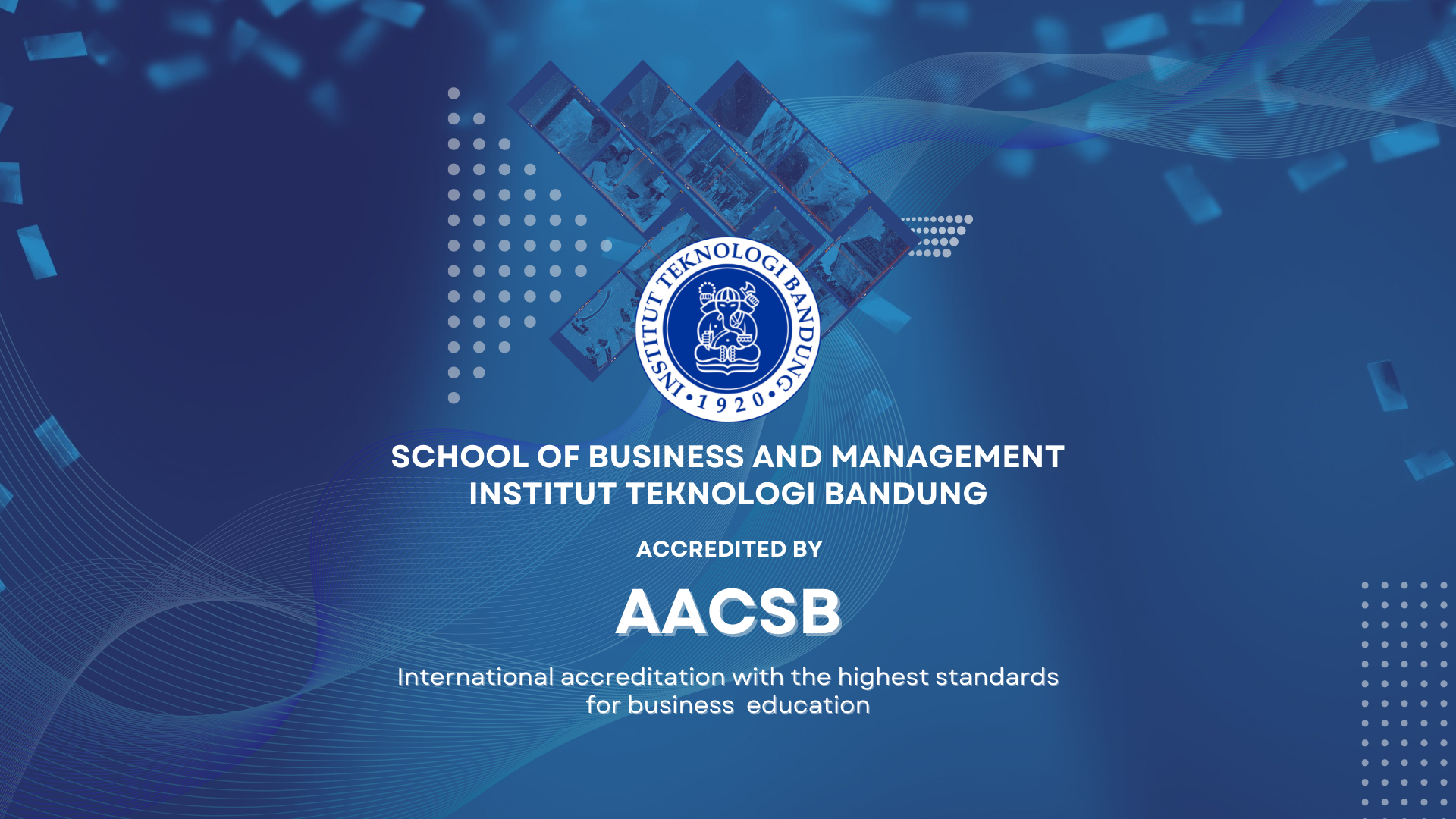We should be proud that SBM ITB has been recognized as an international standard campus, indicated by AACSB accreditation. Graduates are guaranteed to be of high quality and comparable to graduates of other global business schools. SBM ITB should also be proud because it is one of only 5% of the world’s best business schools that is prestigiously accredited.
 This AACSB accreditation supplements other accreditations at the national level. Each study program in the SBM ITB receives a superior (UNGGUL) accreditation rating and assessment from BAN-PT.
This AACSB accreditation supplements other accreditations at the national level. Each study program in the SBM ITB receives a superior (UNGGUL) accreditation rating and assessment from BAN-PT.
Nur Budi Mulyono, the Director of the Bachelor of Management Program SBM ITB, expressed his joy at receiving this international recognition. “That we are all pleased with the results we have achieved after running the school for a long time. As a school with a mission-driven mindset, SBM ITB has successfully walked the path we want to take. All of this is due to the participation of all parties, including lecturers, students, and, most importantly, students,” he said.
Yuliani Dwi Lestari, the Director of MSM and DSM Program, expressed a similar positive impression. “Of course, we are proud that SBM ITB has evolved into a global business school. Following an international recognition, such as AACSB, it is hoped that we will be able to develop into a school that can be the nation’s pride globally. For the time being, this international standard has become the primary reference for our performance,” stated Yuliani.
The Road to AACSB
There have been numerous dynamics and challenges in the long journey of struggle since 2013. We began with planning and strategy, then moved on to implementation via internalization of new procedures and policies, and finally to assessment or measurement as materials for evaluating the overall performance of the SBM ITB education system.
“The path to AACSB accreditation can be described as dynamic, where we systemically change teaching habits and lecturers, student learning patterns, and technical support. I’m also thankful that we have a very supportive environment. As long as what we do makes sense for the greater good, everyone wants to make changes,” Yuliani explained.
Nur Budi also stated that SBM ITB is attempting to implement and create a constructive system. Even though there is resistance and difficulty in every wave of change, everyone accepts the changes and works to make SBM ITB a better business school every day.
In addition to the dynamics, Yunieta Anny Nainggolan, Director of MBA Program Bandung Campus, mentioned some challenges during the accreditation process. Maintaining quality through a continuous improvement involving human capital (lecturers, assistants, and other support staff), an adequate budget, and a dependable PDCA system for strategic planning programs is an integral and inseparable challenge.
SBM’s Future Roadblocks
Despite receiving internationally prestigious accreditation, SBM ITB remains committed to the mindset of continuous improvement. This is consistent with SBM ITB’s mission of obtaining additional advanced accreditations. Following AACSB in the United States, SBM ITB will pursue additional Triple Crown Accreditations. AMBA in the United Kingdom and EQUIS in the European Union will soon apply to fulfill.
SBM ITB will also continue to improve to attract international students’ interest. This can only be accomplished by establishing various constructive collaborations both internally and externally. Internally, we must integrate existing policies and transformations to continue to support AACSB accreditation. Meanwhile, on the external front, SBM will work hard to establish positive relationships with national and international universities. It will also continue to foster a welcoming campus environment for international students.
Each speakers also explained the direction of the goals to achieve by each head of the study program, which was equally constructive. According to Nur Budi of the Management Study Program, the challenge is collaborating with related industries. The management study program must be a bridge for knowledge and industry as a human producer who plays a role in the initial managerial level. This can be accomplished through collaboration and participation in the Ministry of Education, Culture, Research, and Technology’s Merdeka Campus program.
Meanwhile, Yuliani Dwi Lestari wished to increase the quantity and quality of learning milestones in research and development through the Master of Management Science and Doctoral Science Management Study Program. The ultimate goal is for SBM ITB to become “top of mind” as Indonesia’s best management business research center.
Finally, the Master of Business Administration Study Program, led by Yunieta Anny Nainggolan, will increase the number of practitioner lecturers to match AACSB accreditation qualifications, increase industry collaboration, and create international collaboration programs with top business schools and MBA programs worldwide.




